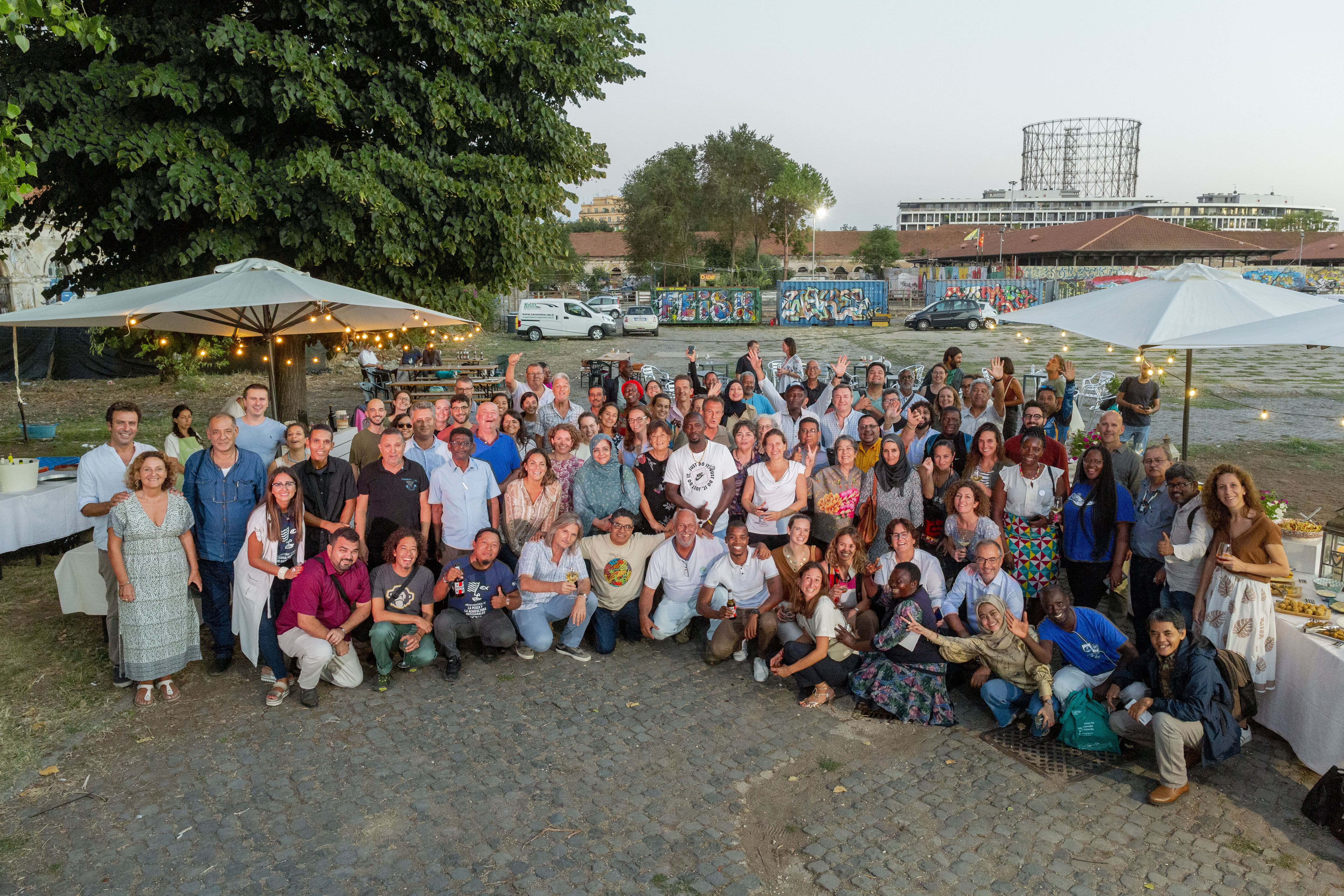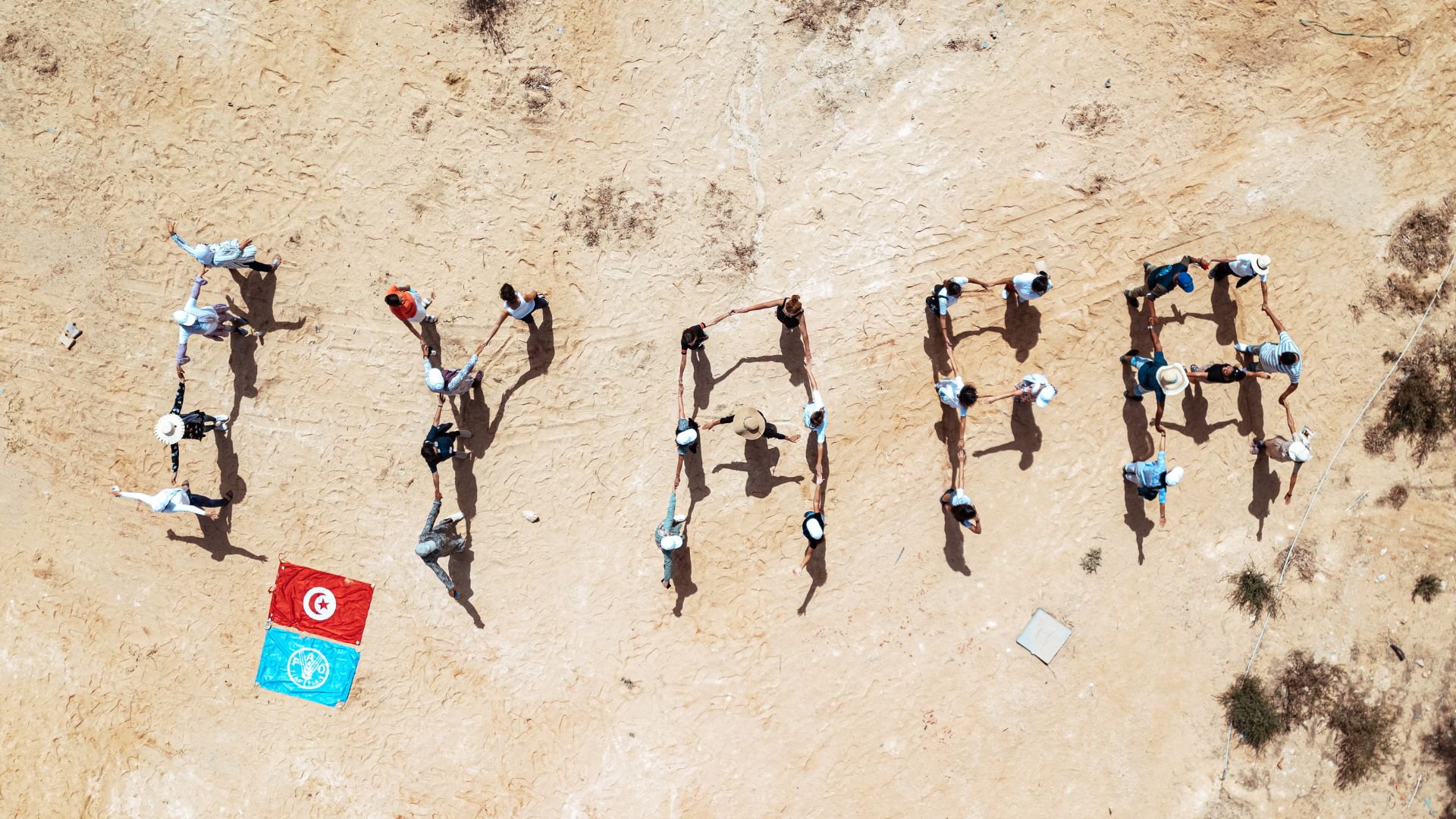IYAFA: looking back, looking forwards
.png)
Today marks the end of the International Year of Artisanal Fisheries and Aquaculture (IYAFA) 2022. It was a busy year for everyone involved, including the GFCM, and FAO is celebrating twelve months of achievements with a special hybrid international closing event on 31 March.
IYAFA was launched to focus global attention on the critical importance of small-scale fisheries and aquaculture. Described as “small in scale, big in value”, all over the world, these two sectors make a vital contribution to society, providing livelihoods for millions and food and nutrition for billions more.
Small-scale fisheries and aquaculture face a number of pressures and challenges, however, that must be overcome in order for the sectors to make the most of their potential. The International Year of Artisanal Fisheries and Aquaculture was envisioned to promote a year’s worth of international action following a Global Action Plan, with expected outputs in four key areas: awareness-raising, strengthening the science–policy interface, empowering stakeholders, and building partnerships.
For the GFCM, the challenge was to consider these outputs in the context of the Mediterranean and the Black Sea and to devise initiatives to support them, in line with the priorities identified in the GFCM 2030 Strategy for sustainable fisheries and aquaculture.
Small-scale Fisheries Forum: reinforcing the human dimension
The SSF Forum was central to the GFCM’s IYAFA activities, with over 400 people taking part in a series of 11 workshops geared toward building capacity in the sector, a central aim of both the Regional Plan of Action for Small-Scale Fisheries (RPOA-SSF) and the IYAFA Global Action Plan. The workshops covered a range of subjects, from specific research programmes (on rapa whelk and European eel, for example) to technical innovations, data collection, livelihood diversification, bycatch reduction and the stakeholder–policy interface.
In early March, 60 fishers and other stakeholders took part in a two-day joint planning consultation at FAO headquarters in Rome to collaboratively plan the SSF Forum 2023–2024 programme, with a focus on strong SSF organizations, marine pollution, non-indigenous species and selective fishing gear. A clear consensus was reached that engaging the next generation of small-scale fishers remains a priority to be addressed within each workshop, as well as gender and increasing women’s visibility.
The RPOA-SSF provided the background theme for “9 topics, 9 features”, a series of articles featuring the human faces behind the RPOA-SSF, demonstrating that fisheries management is about more than just regulations and paperwork – it involves real people in local communities and fully engaging them in the decisions that affect their livelihoods.

©GFCM/Christian Mantuano
These issues were among those discussed in September in Rome, when the GFCM helped to coordinate the first-ever global SSF Summit, bringing together more than 200 stakeholders from over 40 countries for dialogue on the current state of play in the small-scale sector and how best to ensure a thriving and sustainable future.
.jpg)
©GFCM/Tarbouriech not Ostras de Valencia
Aquaculture: innovation and empowerment
Many of the same issues are also relevant to the regional aquaculture sector. Raising awareness of its importance is a key priority, which led the GFCM to partner with producers from the region and with the Institut Paul Bocuse Research Center to collaboratively produce a guide to sustainable aquaculture for the general public, shedding light on the entire farm to plate journey. Along with information on different species and production techniques, featuring pioneering sustainable farming success stories, the guide also includes new recipes for 12 farmed species, created by young chefs from across the region, emphasizing the complementary relationship between producers, chefs and consumers. The guide focuses particularly on sharing knowledge and knowhow with the next generation – they are, after all, the future.
Empowering young women was the theme of a special GFCM training week on sustainable aquaculture held in Tunisia in September. Twenty-one participants from 16 countries were selected from more than 150 applicants to take part in a programme of activities ranging from communications and marketing trainings to technical sessions and site visits. The aim was to give the young women new skills and knowledge to support their full and effective participation in all levels of decision-making in the sector, helping to fulfill another of the goals of the GFCM 2030 Strategy.
GFCM scientists and researchers have stayed busy in the field too. One particularly important project has conducted extensive surveys of fish farms in Lebanon, Syria and Palestine in order to inform future sustainable development. The food security, nutritional benefits and livelihoods that the sector offers are particularly valuable given the challenging socio-political situations of the three countries, and IYAFA lent this work added momentum.

©GFCM/Hedi Chouchen
While IYAFA has now concluded, the GFCM’s work continues. Among many other things, 2024 will celebrate the tenth anniversary of the Small-Scale Fisheries Guidelines and the mid-point of the RPOA-SSF’s mandate. We’re looking forward to another very busy year in the world of small-scale fisheries and aquaculture!
A bit of context:
In the Mediterranean and the Black Sea, small-scale fisheries have played an integral sociocultural role for thousands of years, and they continue to do so today. They’re also much more significant than many people realize: small-scale vessels comprise 82 percent of the regional fishing fleet (68 800 vessels), provide 59 percent of total on-board employment (115 000 jobs) and generate 27 percent of total fisheries revenue (USD 793 million).
Small-scale aquaculture, meanwhile, is an active regional industry with strategic importance for blue growth. Today, around the Mediterranean and the Black Sea, some 35 000 farms produce about 2.8 million tonnes of aquatic foods each year, directly or indirectly employing half a million people.


